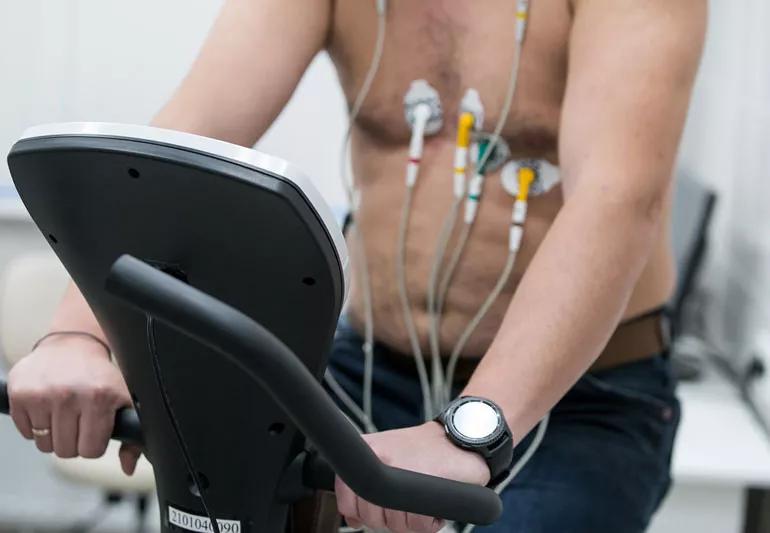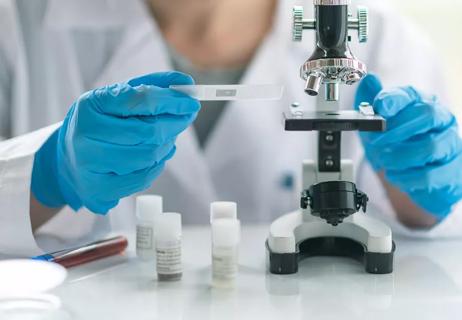Pre-treatment heart function tests can help you later

Radiation and chemotherapy fight cancer and save lives. But some patients develop heart problems during treatment and even years or decades later as a side effect of the life-saving treatment.
Advertisement
Cleveland Clinic is a non-profit academic medical center. Advertising on our site helps support our mission. We do not endorse non-Cleveland Clinic products or services. Policy
“Because of this, it is important for you to have cardiac screening tests before and sometimes during or after treatment,” says oncologist G. Thomas Budd, MD. “That way, your doctor may be able to prevent potential problems from occurring.”
Doctors use several different types of tests to determine heart function before and after radiation therapy and chemotherapy. The tests include:
Advertisement
Although the MUGA scan is a reliable test for measuring LV (left ventricular) function, an echocardiogram gives a more comprehensive look at both cardiac function and the function of the heart valves. When coupled with measurements of cardiac strain, it becomes more sensitive for detecting subtle changes in cardiac function.
Echocardiography provides your doctor with a comprehensive evaluation of the heart’s function and structure, including the chambers and valves.
Strain imaging combined with echocardiography further evaluates the function of the heart muscle using cardiac ultrasound. This method is particularly useful in identifying subtle changes in heart function. Strain imaging is better because it can detect changes in your heart’s performance even before they show up as clinical symptoms.
Strain imaging provides two important sets of data: Left ventricular ejection fraction (EF) and LV strain (stress).
Abnormal LV strain will prompt us to recommend follow-up testing with echocardiograms to monitor for further changes in cardiac function. We may also recommend treatment with cardioprotective medications.
Medicines can help ease the burden on your heart if any impact occurs from cancer treatment. And they can help prevent the need for surgical intervention down the line.
After comparing initial and subsequent test results.
“If we find dramatic changes in LV strain, we can initiate treatment with beta-blockers, ACE inhibitors and possibly statins to prevent further damage,” he says. “We also will follow up with continued testing of these patients to make sure that heart function remains stable.”
Talk with your doctor about your cancer treatment and discuss testing for heart function. This testing will establish your “baseline” heart function. There is no “normal” and no two people share the same heart function. That makes it important to know what your pre-treatment function is. That way doctors can test afterward and compare the results.
Advertisement
Learn more about our editorial process.
Advertisement

Chemo cold caps may help you keep more of your hair during therapy

Practice meditation together, make a unique-to-them care package and embrace emotions

From a thoughtful note to a special pillow, these items are a win

How to create your own organizational system

Take these steps to limit the damage

The short answer from an exercise physiologist

New drugs are better at targeting cancer cells

The short answer from an oncologist

Start having sex about 72 hours before ovulation, then at least every other day during your fertile window

Attachment theory suggests that your earliest relationships shape connections throughout your life

It isn’t a recognized mental health disorder, but research shows that problematic social media use can negatively affect your mental health, self-esteem and sleep